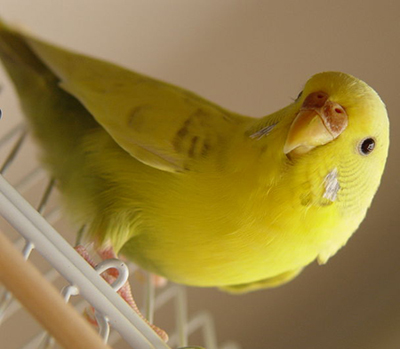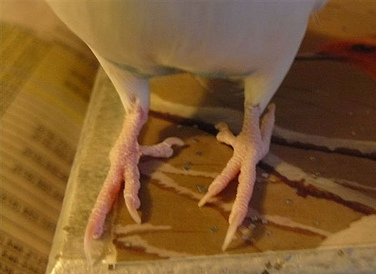Signs of a Healthy Budgie - signs of a healthy bird
When looked after properly, budgies are fairly resilient little animals. Make sure you have an adequate cage size, and that its position is in a dry, suitable area for a budgie (a consistent temperature, out of the rain etc).
There are several signs of a healthy budgerigar, and for the most part they are fairly obvious. As with all animals (human’s included) body language and behavior are key signs if something is troubling us, and budgies are no different.

Healthy budgie signs include:
- Healthy Appetite: A healthy Budgie usually eats in the morning. Loss of appetite can suggest your budgie may be unhealthy or unhappy.
- Active: Budgies are usually active, acrobatic little birds with less active periods. A healthy budgie will be alert and responsive.
- Grooming: Healthy budgies spend time each day preening themselves so their feathers are ordered and smooth. Feathers are an important part of a healthy budgie so be on the lookout for any loss of feathers (there should be no loss of feathers unless your budgie is malting), excessive puffing of feathers, and any other fluctuating grooming habits.
- Claws and Feet: There are several diseases that target budgie’s feet, making them susceptible to health issues. Healthy Budgies feet should be free of any encrustation or malformation and claws shouldn’t be too long. The image below shows healthy budgies feet.

- Flight: Flight should be even, with the budgies wings easily able to support them. Erratic flight patterns and crashes can suggest poor eye sight and other potential problems.
- Cere: A healthy budgies cere should be free of any encrustation or blockages and be waxy in appearance. Female’s have a brown cere and Males have a blue cere. Sometimes your budgies cere can turn a darker brownish colour for some time, but this is usually hormone related and isn’t of major concern unless it remains a brownish colour for long periods of time, consult your vet if in doubt!
- Beak: A budgies beak should be firm, intact and capable of de-husking seeds. Over grown and under grown beaks can suggest health problems. Keep an eye on the feathers around your budgie’s cere and beak as this area can be susceptible to scaly face and mites. If your budgie is breathing with his/her beak open, this can be a sign of labored breathing or even fever; if it continues consults your vet.
- Droppings: Runny droppings are usually a sign of poor diet, a healthy budgie’s droppings will be firm and harden fairly quickly.
Overall your budgie will let you know if something isn’t right, but it’s your responsibility as a pet owner to keep an eye out for signs that your budgie isn’t happy or healthy. Remember that boredom is something that can affect budgies too, so make sure you spend time with your budgie or if you aren’t at home much, buy your budgie a friend for company. If you are ever in doubt of your budgie’s health, don’t hesitate to make a vet appointment!









